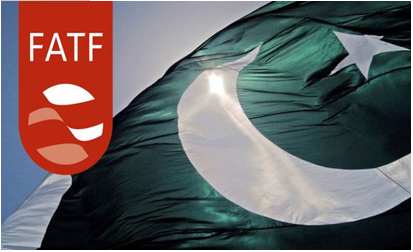INP-WealthPk
Qudsia Bano
India’s renewed efforts to push Pakistan back on the Financial Action Task Force (FATF) grey list have been termed baseless and politically motivated by experts, who assert that the country has not only fulfilled all FATF conditions but is also maintaining long-term compliance in line with the international financial standards.

Talking with WealthPK, Dr Haroon Hamid, former senior economist at the World Bank, said there was no merit in India’s lobbying attempts. “Pakistan completed both the 2018 and 2021 FATF action plans covering 34 action points. These included strengthening the anti-money laundering (AML) and counter-terrorism financing (CFT) regimes, prosecuting designated individuals, and enhancing international cooperation,” he said.
“India’s attempts to revive the FATF scrutiny appear to be driven by political motives rather than any shortcomings on Pakistan’s part.” Pakistan was officially removed from the grey list in October 2022 after the FATF acknowledged that the country had met all requirements. These included risk-based supervisions of financial institutions, transparency in beneficial ownership data, asset confiscation related to terror financing, and coordination between the federal and provincial agencies.
Since its removal, Pakistan has institutionalised reforms, including amendments to key laws such as the Anti-Money Laundering Act and Anti-Terrorism Act. The country has also improved inter-agency coordination and established dedicated financial monitoring units. According to official data, Pakistan has frozen over 4,000 bank accounts linked to the proscribed organisations and seized assets worth millions of rupees in line with FATF expectations.
Speaking on the matter, Dr. Tariq Mehr, economic advisor at the Economic Council of EFP, said Pakistan’s commitment has gone beyond short-term compliance. “These reforms have been embedded into the national financial policy and are part of the ongoing IMF programmes. The IMF has acknowledged Pakistan’s steps in its recent reviews, particularly the improved AML/CFT frameworks,” he said.
The International Monetary Fund, in its 2023 country report, positively noted Pakistan’s post-FATF compliance efforts, stating that the country had made progress in aligning with FATF standards and incorporated them into the structural reform agendas. Despite this, Indian lobbying has continued in recent FATF regional meetings.
However, experts argue that such moves have failed to gain traction due to Pakistan’s technical performance and documented progress. “Pakistan’s FATF record is now public, and most member countries are aware that it has moved from a reactive approach to a sustainable system,” said Dr. Mehr. Pakistan’s Foreign Office has also rejected India’s efforts as “motivated by geopolitical hostility,” urging FATF members to keep the forum free from political influence.
Diplomats in Islamabad assert that India's narrative has little support, as no fresh deficiencies have been reported by the FATF or its regional bodies. With consistent monitoring, legislative upgrades, and ongoing cooperation with international partners, Pakistan continues to meet the global expectations. Experts warn that political interference in platforms like the FATF not only undermines the body’s credibility but also weakens global consensus on fighting financial crimes.
Credit: INP-WealthPk













